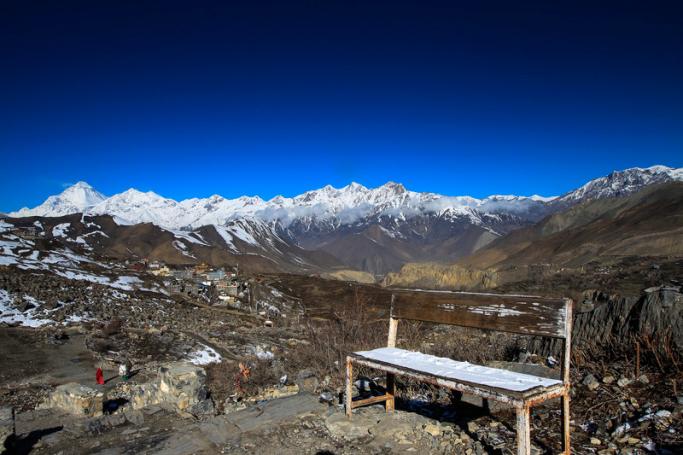For a tiny landlocked country like Nepal, logistical routes are limited and a small disruption can lead to catastrophic repercussions for its economy. China has banked upon Nepal’s economic and geostrategic vulnerabilities in order to discipline it in an attempt to diminish its ties with its adversary economy - India.
Nepal shares its borders with China through the illegal occupation of Tibet in 1950 by Chinese forces. This was formalized through various treaties and agreements signed post-annexation that recognized Tibet as being part of Chinese territory and confirmed the limits of Sino-Nepali borders.
Border-crossings are an integral source for food, medicines, etc. for small Nepalese villages and any failure in the supply chain would adversely impact the lives of the thousands dwelling in these lands. While border crossings between Zhangmu and Kodari have been in operation since 1968, newer ports for trade have opened up in recent times, particularly with the signing of the 2012 treaty.
China blocked Rasuwagadhi, Kerung and Tatopani checkpoints owing to pandemic control measures for over six months this year. Nepali traders have reported huge losses as trucks were left stranded at the checkpoints. The Nepalese Oli-led administration was urged to take up diplomatic talks to allow the movement for essential services as the barest minimum.
The Tatopani border point remained shut since July after a massive landslide in the area. Rasuwagadhi has remained shut since December 2019. Nepalese goods have been stuck for over 11 months now with no signs of any efforts being made to create a conducive environment for traders to bring in the marooned goods. Both the checkpoints — Rasuwagadhi and Tatopani — have closed and reopened up to six times now.
Even after the Tatopani border was opened on 6 July, Chinese restricted movement of goods from entering Nepal. Only four containers a day were permitted to cross the borders, and exports from Nepal are halted since March. According to Nepal’s Department of Customs, hundreds of containers remain stranded at border checkpoints.
The traders have made solemn representations to the Chinese authorities to all the smooth transit between China and Nepal. The Nepal China Chamber of Commerce and Industry has requested Chinese Embassy in Kathmandu to allow smooth movement of vehicles at Tatopani and Keyrung transit points. The traders have claimed that Nepalese businessmen are disappointed with Chinese restrictions on border points, especially as most of the stranded vehicles were carrying food items which have now lost their shelf life causing losses to traders. There is negative sentiment among public as prices of essential goods spiraled especially during the festive season.
China’s statements on the issue have raised questions over its intimidation tactics yet again. As Indian high-level visits colored Nepalese grounds over the past few months, China has used all possible ways to communicate its dismay. This blockade in a time that calls for acquiescence on humanitarian grounds has hit a new low for Sino-Nepal relations. Several Nepalese organizations took to the streets to voice out their disapproval of Chinese games with the Nepalese administration. With billions of losses in trade and lives at stake, both governments have not taken any credible steps to solve the blockade issue that is plaguing Nepalese villages. China’s stance seems unreasonable at a time when India has maintained flexibility by allowing entry of Nepalese trucks despite the coronavirus pandemic.China’s promise of turning Nepal from a land-locked country into a ‘land-linked’ country is failing miserably.












